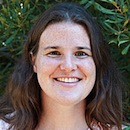Academic Editors
The following people constitute the Editorial Board of Academic Editors for PeerJ. These active academics are the Editors who seek peer reviewers, evaluate their responses, and make editorial decisions on each submission to the journal. Learn more about becoming an Editor.

Theodore Eliades
Theodore Eliades is Professor and Director of the Clinic of Orthodontics and Pediatric Dentistry, Director of Research, and Interim Director of the Institute of Oral Biology at the Center of Dental Medicine, University of Zurich. He graduated from the School of Dentistry, University of Athens, Greece, and completed the Orthodontic postgraduate program of the Ohio State University under Ze’ev Davidovitch. He earned a Master of Science degree from the Ohio State University, a doctorate in medical sciences from the University of Athens, School of Medicine, and a PhD in Biomaterials with Prof. D.C. Watts from the University of Manchester.
His research has generated over 200 papers and 45 book chapters, which have received ca 7000 citations and an h index of 45 (google scholar). He has edited 11 textbooks published by major houses, some translated into 5 languages, and has co-supervised more than 25 doctorates and 30 Master’s at the Universities of Athens, Thessaloniki, Marquette, Manchester, Bonn and Zurich. He is an elected Fellow of the Institute of Materials, Minerals and Mining, and the first dentist who was awarded the Fellowship grade of membership from both, the Royal Society of Chemistry, and the Institute of Physics (UK).

Ibrahim Elsohaby
Dr. Ibrahim Elsohaby is Assistant Professor in the Department of Infectious Diseases and Public Health and City University of Hong Kong. His current research investigates the One Health epidemiology of infectious and zoonotic diseases, including antimicrobial resistance. The aim of this research is to use epidemiologic and quantitative methods to develop realistic antimicrobial stewardship strategies based on a One Health approach and to reduce the risk of zoonotic diseases transmission to human contacts and general public.

Joanna L Elson
My work considers mtDNA disease through the prism of evolution, applying a number of techniques to develop methods to identify pathogenic mtDNA mutations. I also work on the role of mtDNA population variation in common disease, inclusive of projects centred round a single disease and method development. Others papers centre on fundamentals of mitochondrial genetics including inheritance and the selective forces that have shaped mtDNA variation in modern human populations.

Gian Pietro Emerenziani
Bachelor in Sport Sciences, summa cum laude (2004) and Specializations Degree in Preventive and Adapted Physical Activity at University of Rome "Foro Italico", summa cum laude (2006). On 2010 he finished the Post Doctoral course in Biomedical and Methodological Aspects of Preventive and Adapted Physical Activities at University of Rome "Foro Italico". During his career, he deepened his knowledge and scientific and clinical skills in the fields of Physical Activity and Sport Sciences focusing on the effects of different Training Program on health in Obese and Older subjects. Since 2009 he has taught as expert in the subject at University of Rome "Foro Italico", then in 2016 as a holder of single courses and integrated courses at the University of Catanzaro "Magna Graecia".The number of publications on indexed peer-reviewed journals with Impact Factor (41 since 2008) and the number of citations received from them (483) shows his high albeit young scientific activity.In 2017 he obtained the MIUR grant (FFABR). He is a member of the Editorial Board of the “Motricidade” , “PeerJ" and "Austin Sports Medicine" journals. Moreover, he is the Reviewer of several international journals, such as Eating and Weight Disorders and International Journal of Sports Medicine. Member of the Italian Society of Sport Sciences (SISMES) and of Italian Society of Andrology and Sexual Medicine (SIAMS).

Richard D Emes
Professor of Bioinformatics at Nottingham School of Veterinary Medicine and Science and Director of the University of Nottingham Advanced Data Analysis Centre.
Research interests are in bioinformatics, comparative genomics and molecular evolution particularly in the fields of pathogen biology, epigenetics and neurobiology.

Scott Emrich
I received a BS in Biology and Computer Science from Loyola College in Maryland and a PhD in Bioinformatics and Computational Biology from Iowa State University (ISU). Upon graduation, I received a ISU Research Excellence award and the university-wide Zaffrano Prize for Graduate Research. Starting after graduation in 2007 I spent the first ten years of my career at the University of Notre Dame, and now am an Associate Professor at the University of Tennessee (Knoxville). My research interests include genome-focused bioinformatics, parallel and distributed computing, and the intersection of biological applications and second and third-gen sequencing. Nearly all of my research has been funded by the National Institute of Health (NIH).

Hedley Emsley
Expertise in neurology, cerebrovascular disease, and the neurovascular-neurodegenerative interface, including the role of inflammation/infection, novel imaging measures, emerging therapeutic targets and clinical trials.
Career History:
Completed medical degree, including intercalated BSc in Pharmacology, University of Manchester (1996). House Officer and Senior House Officer posts in North West England and National Hospital for Neurology and Neurosurgery. Completed MRCP(UK) (1999), then undertook a three year clinical research post in Manchester leading to a PhD (2004). Completed neurology training, Walton Centre for Neurology and Neurosurgery then obtained CCT in Neurology (2008), as part of a Clinical Lecturer post, University of Liverpool. Appointed ConsuItant Neurologist with specialist interest in stroke neurology for Lancashire Teaching Hospitals NHS (2008-present). Also contributes to Lancashire and Cumbria Stroke Network developments. Honorary Lecturer for University of Liverpool. Member both the Association of British Neurologists and British Association of Stroke Physicians (BASP). Elected to the BASP Training and Education Committee in 2009, and appointed Chair of the committee (2010-present).

Drew Endy
Faculty of Bioengineering, Stanford University. Helped start BioBricks (biobricks.org) and iGEM (igem.org), and is a member of the US National Advisory Board for Biosecurity (biosecurityboard.gov).

Jurgen Engelberth
Dr. Jurgen Engelberth has a Ph.D. in plant physiology from the Ruhr University Bochum, Germany. After working at the Max Planck Institute for Chemical Ecology and at USDA, ARS, CMAVE in Gainesville, FL, he joined the biology faculty at the University of Texas at San Antonio (UTSA). He is currently an Associate Professor for plant biochemistry. He is an Associate Editor for Plant Signaling and Behavior and Plants. His work is focussed on plant-plant interactions by volatiles signals in response to biotic and abiotic stresses.

Barbara E. Engelhardt
Senior Investigator at Gladstone Institutes, Professor of Biomedical Data Science at Stanford University. My group develops statistical models and methods for high-dimensional genomic data, modeling human genetic variation and its impact on gene expression and splicing, with the goal of identifying mechanisms of human disorders and diseases.

Barbara Ensoli
Director of the National AIDS Center, Istituto Superiore di Sanità, Rome, Italy. Co-Vice President and Member of the Presidential Committee of the AIDS National Commission, Ministry of Health. Member of the European Molecular Biology Organisation (EMBO).
Ottavia M. Epifania
Dr. Ottavia Epifania is Assistant Professor at the University of Trento
Her research interests include Psychometrics, particularly in Item Response Theory.

